Humans
Sign up for our newsletter
We summarize the week's scientific breakthroughs every Thursday.
-
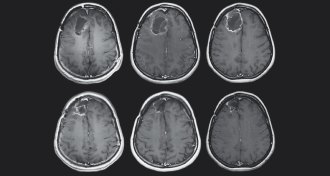 Health & Medicine
Health & MedicinePoliovirus treatment helped patients with deadly brain tumors live longer
A genetically modified poliovirus appears to help fight brain cancer, a small, early-stage clinical study suggests.
-
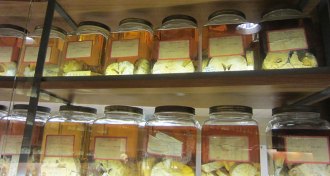 Health & Medicine
Health & Medicine‘Aroused’ recounts the fascinating history of hormones
The new book "Aroused" demystifies hormones, the chemicals that put the zing into life.
-
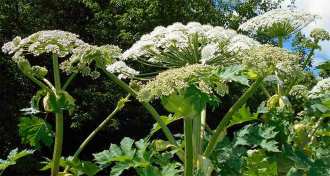 Health & Medicine
Health & MedicineWhat is it about hogweed — and lemons and limes — that can cause burns?
Some plants have compounds that, after exposure to sunlight, produce streaky or spotty burns.
-
 Health & Medicine
Health & MedicineNew studies add evidence to a possible link between Alzheimer’s and herpesvirus
Researchers saw higher levels of herpesvirus in the brains of Alzheimer’s patients, which may contribute to plaque formation.
-
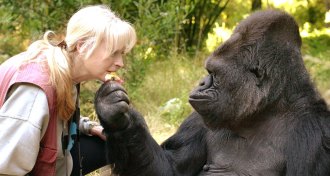 Anthropology
AnthropologyKoko the gorilla is gone, but she left a legacy
An ape that touched millions imparted some hard lessons about primate research.
By Bruce Bower -
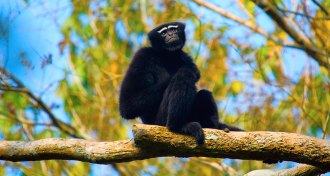 Anthropology
AnthropologyA 2,200-year-old Chinese tomb held a new gibbon species, now extinct
Researchers have discovered a new gibbon species in an ancient royal Chinese tomb. It's already extinct.
By Bruce Bower -
 Neuroscience
NeuroscienceSplitting families may end, but migrant kids’ trauma needs to be studied
The long-term effects of separating children from their parents at the U.S. border need to be studied, scientists say.
-
 Health & Medicine
Health & MedicineHow to help your toddler be helpful (with caveats)
Even very young toddlers like to help, a social skill that’s linked to later success in school and life.
-
 Psychology
PsychologyPhone apps are helping scientists track suicidal thoughts in real time
Researchers are using smartphones to tap into the ups and downs of suicidal thinking that occur over hours and days, hoping to help prevent suicides.
By Bruce Bower -
 Health & Medicine
Health & MedicineThe number of teens who report having sex is down
About 40 percent of high school students are having sex, the lowest amount in the last three decades.
-
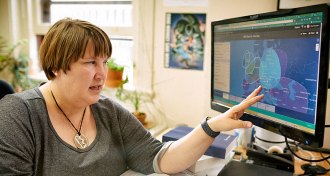 Humans
HumansWhat I actually learned about my family after trying 5 DNA ancestry tests
Ancestry results vary widely depending on which company you use.
-
 Genetics
GeneticsDNA testing can bring families together, but gives mixed answers on ethnicity
DNA testing has become a new way for millions of Americans to expand their family trees and learn something about themselves, but results vary widely.